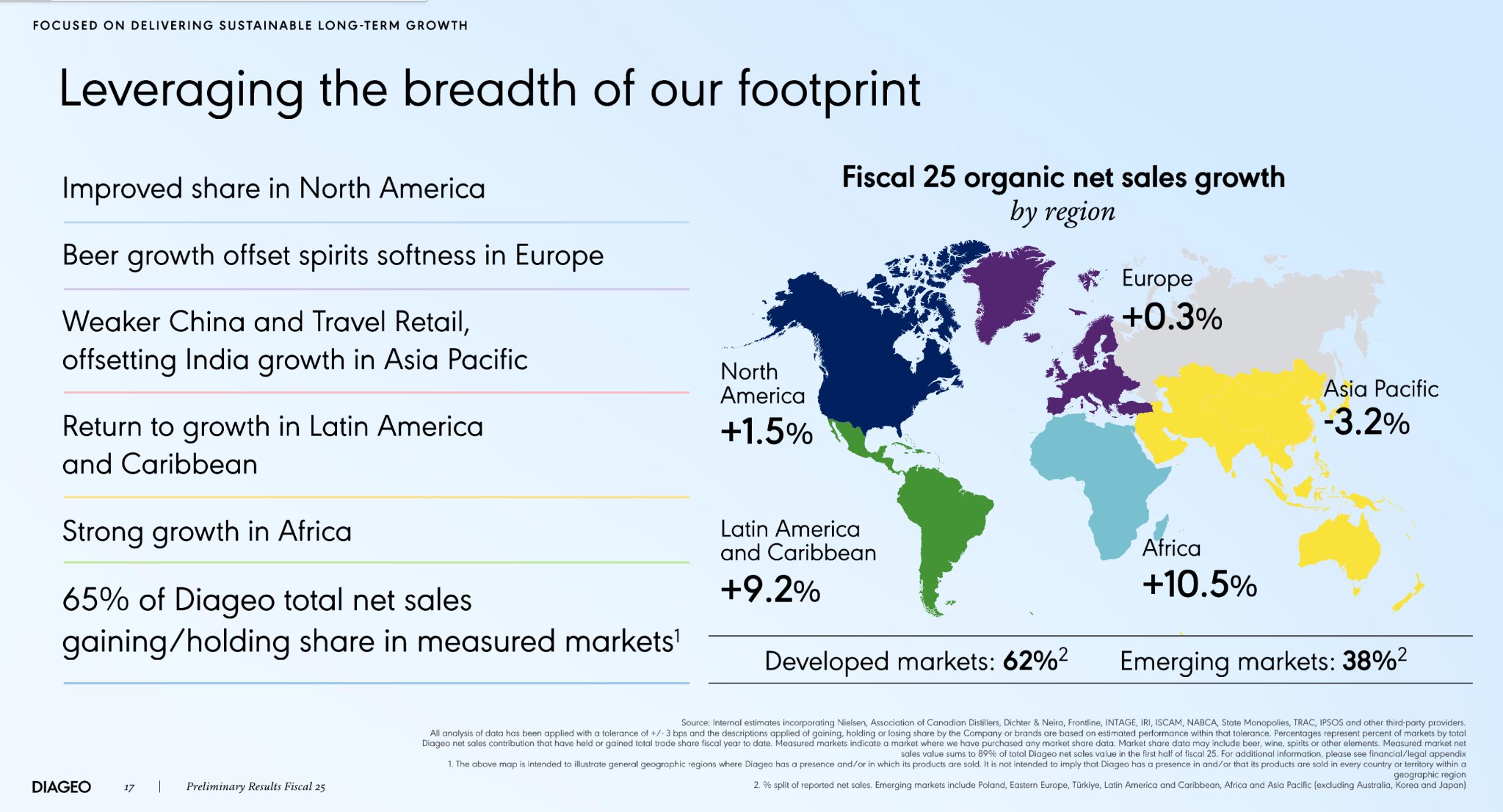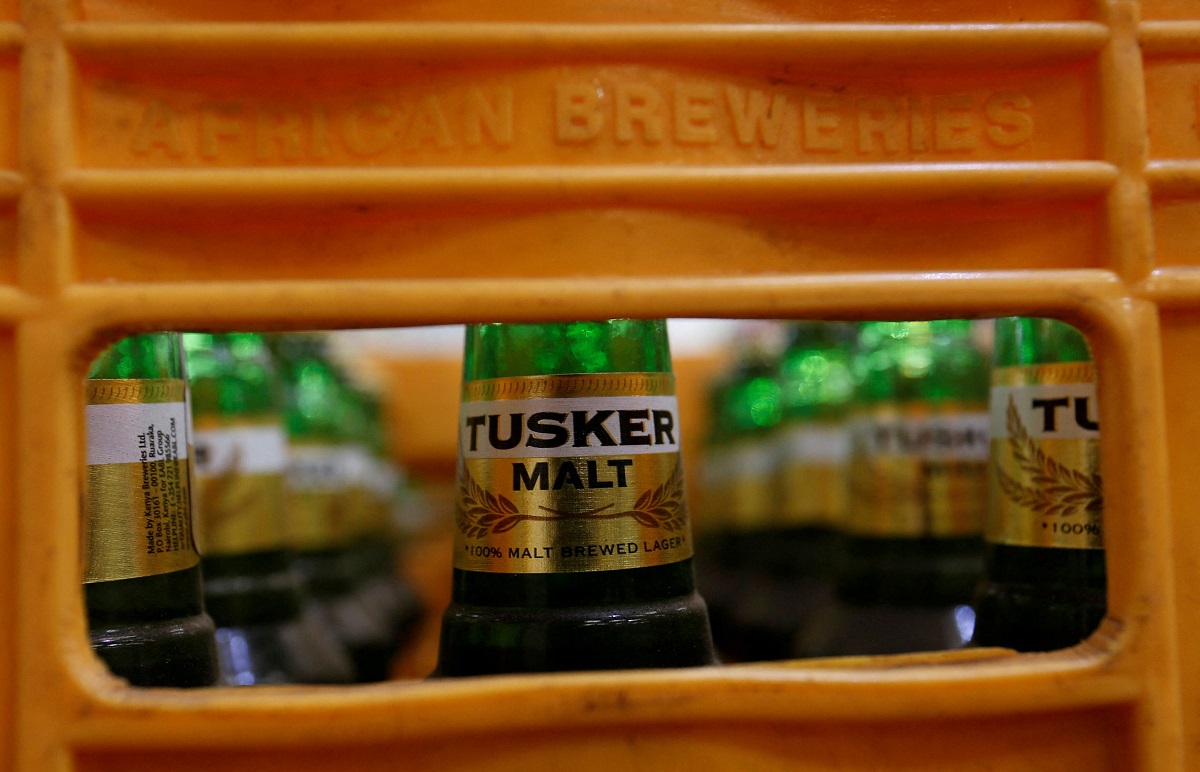Diageo’s East African exit: Economic and competitive implications
- Diageo is exploring the sale of its 65% stake in East African Breweries Ltd (EABL), valued at up to $2 billion, as part of its strategy to exit African beer markets and focus on high-margin spirits.
- The potential sale, involving major brands Tusker and Guinness, could reshape East Africa’s beverage industry, attracting interest from global players like Heineken and AB InBev.
- EABL’s strong financial performance and regional presence make it a pivotal asset, but implication on jobs, competition, and local economies loom.
Diageo, the British beverage giant, is poised to reshape East Africa’s beer industry with a strategic review of its 65 per cent stake in East African Breweries Ltd (EABL), which is valued at up to $2 billion.
By enlisting the Bank of America and Goldman Sachs to evaluate options, including a potential sale, Diageo has signaled a broader retreat from beer operations across Africa.
According to analysts, this move aligns with its “Accelerate” programme, launched just after Christmas in 2024 to generate $3 billion in annual free cash flow by 2026 through divestitures of underperforming assets.
Having already sold stakes in other key markets in Africa including Guinness Ghana, Guinness Nigeria, Guinness Cameroon, Seychelles Breweries, and Ethiopia’s Meta Abo Brewery, Diageo’s focus remains on retaining control of its premium Guinness brand while exiting brewing operations.
EABL’s market dominance and valuation
EABL, headquartered in Nairobi, is a cornerstone of East Africa’s beverage industry, with dominant presence in Kenya, Uganda, and Tanzania, and key distribution avenues covering over 10 African countries. Its portfolio boasts iconic brands such as Tusker, Bell Lager, and Kenya Cane, alongside licensed production of Guinness.
Analysts estimate EABL’s worth at $2.79 billion, a significant premium over its $1.2 billion Nairobi Securities Exchange valuation, suggesting Diageo’s stake could fetch up to $2 billion once sold.
This potential deal, one of the largest in East Africa’s private industry, could attract brewing giants such as Heineken, Castel Group, or AB InBev, companies that are eager to capitalize on the region’s growing beer market, Bloomberg reported.
Diageo exit from East Africa: Economic and Competitive Implications
A sale of EABL’s beer business could transform East Africa’s beverage industry in more than one way. EABL commands a dominant position in Kenya and a 14 per cent share in Tanzania’s rapidly expanding market.
A new owner, less focused on spirits than Diageo, could drive innovation in premium and craft beer segments, appealing to urban millennials.
This shift could intensify competition, spur marketing battles, and introduce new pricing strategies, reshaping consumer choices.
However, the deal faces scrutiny from regional regulators, such as Kenya’s Competition Authority, to ensure it does not harm market fairness or consumer welfare.
The sale’s proceeds could enable Diageo to reduce debt and finance share buybacks, enhancing shareholder value amid a challenging global economy marked by inflation and unpredictable trade tariffs and tensions.
Diageo’s Financial Context and Leadership Shift
Diageo’s strategic pivot comes amid mixed financial performance. Its 2025 full-year results reported net sales of $20.2 billion, down 0.1 per cent, but organic net sales grew 1.7 per cent, surpassing analyst expectations of 1.4 per cent.
However, operating profit fell 27.8 per cent to $4.3 billion attributable to exceptional impairment and restructuring costs, leading to a decision to maintain dividends at last year’s level—the first time in over two decades without an increase.
The company’s share price, which dropped over 40 per cent under former CEO Debra Crew, jumped 6 per cent post-results announced early August, reflecting optimism about the brewer’s strategic direction.
Interim CEO Nik Jhangiani, who was appointed in July 2025 after Crew’s exit, exuded confidence, citing progress but acknowledged the need for broader portfolio improvements, underscoring the rationale for divesting assets such as EABL.

Regional Impact and Legacy
EABL’s potential sale carries profound implications for East Africa. Beyond its market leadership, EABL employs thousands directly and indirectly, supports local farmers, and contributes significantly to tax revenues in Kenya, Uganda, and Tanzania.
A change in ownership could disrupt long-running supplier relationships, employment, and distribution networks, requiring careful management to maintain stability.
Additionally, EABL’s heritage, which dates back to Kenya Breweries Ltd.’s founding in 1922, makes it a cultural and economic institution in East Africa’s largest economy.
What’s more, its brands, such as Tusker, resonate deeply with consumers, and its sustainability initiatives—such as water recycling and tree planting—bolster its regional impact. A new owner could either build on this legacy or shift priorities, affecting local economies.
EABL’s full-year results, released on July 31, 2025, reported a 12 per cent net profit increase to $94.3 million and a 49 per cent revenue surge to $995.77 million, strengthening its appeal to buyers.
Read also: Singaporean company Tolaram gulps down Guinness Nigeria
Africa’s Beer Market in Transition
Diageo’s potential exit from EABL marks a critical moment in the history of Africa’s beer industry. The continent’s growing middle class and youthful population make it a prime target for global brewers.
Posts on X reflect speculation about strategic motives, with some suggesting Diageo aims to streamline operations amid regulatory pressures or capitalize on EABL’s value before market shifts.
Potential buyers such as Heineken or AB InBev could leverage EABL’s infrastructure to expand in East Africa, where beer demand is rising.
However, Diageo’s retention of Guinness licensing ensures its brand presence persists, even if physical operations change hands. This deal, if completed, could go down in history as Diageo’s most significant African divestment, signaling a shift toward an asset-light model focused on high-margin spirits
Read also: Guinness Nigeria to stop importing Johnnie Walker as Forex sting persists
Share this content:





Post Comment